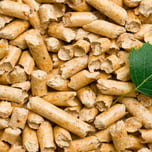
Get up to 3 quotes by filling in only 1 quick form

Slash your energy bills by installing an energy efficient boiler

We’ve helped over 500,000 homeowners reduce their carbon footprint
- GreenMatch
- Boilers
- Biomass Boilers
- Biomass Boiler Grants
Biomass Boiler Grants

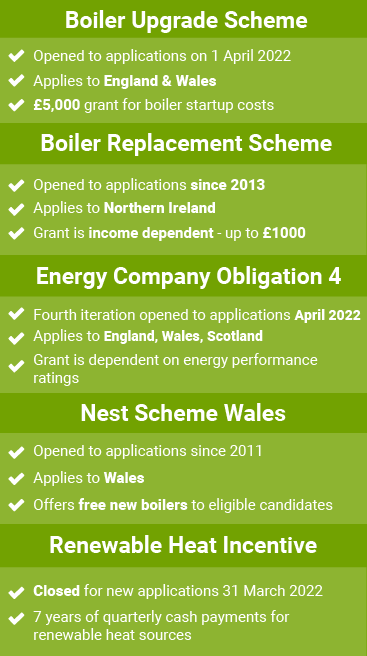
Why Invest in a Biomass Boiler?
Biomass boilers are becoming more popular and are increasingly supported by the UK government as they aim to have net-zero carbon emissions by 2050. Biomass is a low-carbon energy source that can be an excellent solution to reduce your carbon footprint and reduce your rising energy bills in the UK. Energy bills for a typical household will rise by £693 a year starting April 2022!
Below we’ve listed more advantages of a domestic biomass boiler system:
- Biomass is considered carbon-neutral because the same carbon dioxide emitted by the burning process is later reabsorbed by growing trees.
- Wood is a renewable source as it’s relatively easy and quick to grow trees or plants.
- Prices for biomass fuel are more stable than those of gas and oil, and are usually cheaper. However, prices also depend on how far you are from suppliers and if you bulk buy.
- You save on heating bills as biomass boilers are more energy efficient than older boilers because they are quicker to heat your home. Compared to electric systems, a biomass boiler can save you up to £880 a year on heating bills.
- Biomass boilers are low maintenance and in some cases can be fully automated. However, boilers should be properly inspected by a professional on an annual basis.
Biomass boilers are becoming more affordable. In addition to the advantages above, you can benefit from governmental financial support for low-carbon energy sources. If you would like to improve your home with a biomass boiler, the first step is to objectively compare local suppliers near you to lock in the best deal. Make sure to only consider tailor-made offers that are customised for the energy-saving needs of your home through the button below.
- Quotes from local engineers
- Payment by finance available
- Save up to £1040
It only takes 30 seconds



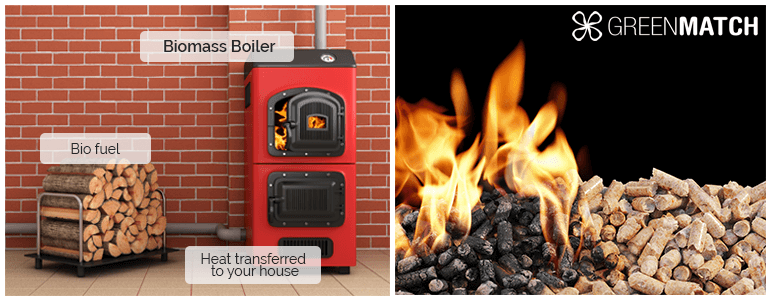
How Do Biomass Boiler Systems Work?
Biomass boiler systems burn biomass to produce energy that can be used to heat homes, generate electricity, or as vehicle fuel. The primary biomass source is wood in the form of pellets, logs, or chips. Depending on the wood shape, the wood is automatically placed into the boiler where an electric probe ignites it. Whereas wood chips and pellets can be used with the automated system, logs must be manually fed into the boiler. The produced heat is controlled by thermostats that adjust both fuel supply and fan speed. This hot gas and air created flow via a flue before being transferred to the water used in the property’s central heating system by a heat exchanger. The boiler can be connected to a buffer storage where excess heat is kept.
Because wood is considered a renewable and sustainable source of energy, biomass boilers are considered an eco-friendly option and are therefore eligible for government grant schemes. Below you will find information about how the scheme works and how much you can save by installing a biomass boiler.
Financial Support for Biomass Boilers
As of 1 April 2022, energy regulator Ofgem closed the Renewable Heat Incentive Scheme (RHI) to new applicants. As of now, only applications concerning a change of ownership can be submitted. The RHI scheme generated a whopping 120TWh in clean heat in 2021. That’s 440 million hot baths! It was the first domestic scheme of its kind to support renewable heat generation for households. In fact, the RHI has helped homeowners afford and install 110,281 renewable heating systems across the UK.
For those who did not apply for the RHI scheme in time, you can still upgrade and save up to £5000 on the cost of a biomass boiler through other government grant schemes. It is important when trying to save money that you invest in a financially and environmentally sustainable heating source as almost half of the energy consumed in the UK is used to provide heat.
Your first step is to find the best biomass boiler supplier to help you upgrade your home. You can start maximising your annual savings now through tailor made offers quotes.
By switching to a wood-powered renewable heat source in your home you could be eligible for financial support payments from the UK government. You can apply for different biomass boiler grants if you live anywhere in England, Scotland, Wales or Northern Ireland. Typically, you must either own your home or be a private or social landlord. New-build properties will not normally be eligible for biomass boiler grants unless you’re building your own home.
Boiler Upgrade Scheme

On April 1, 2022, the Boiler Upgrade Scheme (formerly known as the Clean Heat Grant) was established to assist households with the initial costs of installing boilers. It replaces the Renewable Heat Incentive (RHI). With the new scheme, you can save £5,000 on starting costs for your biomass boiler! The scheme is a part of a £3.9bn funding for the Heat and Buildings Strategy to cut carbon emissions from homes. The national target is for all new heating system installations to be low carbon by 2035.
Am I Eligible for the Boiler Upgrade Scheme?
The scheme operates on a first-come, first-served basis for those who meet the criteria. It is important to consider that this scheme only supports biomass boilers in rural areas.
You may be eligible if you meet the following requirements:
- are a homeowner, small landlord, or private landlord in England and Wales.
- are not replacing an existing low-carbon heating system. You can only replace fossil fuel heating systems (e.g. oil, gas, direct electric).
- have a valid Energy Performance Certificate (EPC) with no unfulfilled loft or cavity wall insulation recommendations
- have an installation capacity up to 45kWth (majority of UK properties have this)
Boiler Replacement Scheme

The Boiler Replacement Scheme was first established in Northern Ireland in 2013. It assists owner-occupiers in making their homes more energy efficient through new boilers. The grant can save you up to £1,000– depending on your income– while making your home more sustainable. If you earn less than £20,000 you can receive £700-£1000 for the boiler. If your income is between £20,000 and £40,000, you can receive £400-£500 for the boiler.
The scheme allows you to replace your inefficient boiler with a more energy-efficient boiler. The replacement scheme works with the following boilers:
Your current, less efficient boiler:
- gas boiler
- LPG boiler
- oil-fired boiler
Can be replaced with any of the following more efficient boilers:
- gas boiler
- oil boiler
- biomass wood pellet fired boiler
Am I Eligible for the Boiler Replacement Scheme?
You may be eligible for this scheme if you meet the following requirements:
- Are the owner-occupier of your main home in Northern Ireland
- Have a gross annual income less than £40,000
- Have an inefficient boiler that’s at least 15 years old
- Have written approval from the Housing Executive
ECO4 (Energy Company Obligation)
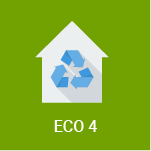
The ECO4 started in April 2022 and will run until March 2026. It is the fourth iteration of the Energy Company Obligation (ECO), which began in 2013 and has since installed over 3.1 million measures. With £1 million in funding each year, the ECO scheme means that electricity suppliers are obligated to help low-income households with energy efficiency measures such as boiler replacement or repair. Under this scheme, 5,000 boilers will be installed.
By 2025, ECO4 aims to have all homes in the UK upgraded to an energy efficiency rating of at least D. Therefore, how much you benefit from this grant scheme depends on the difference in energy performance ratings between your current heating system and the new system. Moreover, the scheme’s specifics have yet to be worked out, but based on ECO3, the prospective benefits appear to also be favourable.
Am I Eligible for the ECO4 Scheme?
Take note that under this new scheme there are additional rules on which households will be eligible for boiler grants. For homeowners with old and inefficient boilers, you should consider applying now because even if you qualify, there is a cap on the number of boiler grants given.
You may be eligible if you meet the following requirements:
- are an owner-occupier or are in private rented accommodation.
- have a valid Energy Performance Certificate (EPC)for your property, as required by the government, that has a rating of D, E, F, or G.
- are a recipient of either benefits, state aid, allowances, or credits. Take note that several disability benefits in ECO3 were removed from the ECO4 scheme. It now offers more aid to those off of benefits but are still considered a low-income household. So, even if you don’t have a qualifying benefit for ECO4, you may qualify forLA Flex (Local Authority Flex) by fulfilling one of the following conditions:
- being in a low-income household
- over the age of 65
- have a child under the age of 5
- have a serious illness
- in receipt of child benefits
Nest Scheme Wales

Nest is a demand-driven scheme that began in 2011. Nest aims to help eradicate fuel poverty and make houses warmer and more fuel efficient with the hope of also improving other aspects of their lives. The latest version of the project will continue through to March 2024.
The Nest Scheme Wales offers free advice for all homeowners looking to improve their home with home energy efficiency improvements. In addition, if eligible, Nest also installs free boilers, central heating systems, and other sustainable home improvements to help low-income households stay warm and reduce energy bills.
Am I Eligible for the Nest Scheme Wales?
A Nest advisor will ask you questions about your property to confirm your eligibility and then recommend a package of energy-efficient improvements for your home. You may be able to get a free boiler as part of your package.
You may be eligible if you meet the following requirements:
- You own your home or rent from a private landlord
- Your home is energy inefficient and expensive to heat
- You or someone you live with receive a means tested benefit or meets a health criteria listed by Nest
VAT Reduction
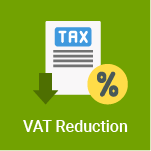
Another opportunity to reduce your biomass boiler costs is the new VAT reduction on energy-saving products. This only applies to wood-burning boilers, though.
If you are over the age of 60 or are receiving income or disability benefits, you could qualify for a 5% VAT reduction.
The first step before applying for grants is finding the right energy-efficient biomass boiler to suit your home.
Luckily, GreenMatch is here to help you by offering up to 3 free and non-compulsory quotes to ensure that you are maximising your savings straight from the start. You don’t want to apply for grants for biomass boilers that are sub-par or not a fit for your home.
- Quotes from local engineers
- Payment by finance available
- Save up to £1040
It only takes 30 seconds




Biomass Boiler Costs
How much does a biomass boiler cost? That depends on the fuel (pellet, logs, or chips) costs, which in turn depends on the method of delivery, the distance from the supplier, and the quantities you are buying. Of course, the cheapest way to go is buying in bulk: that way you can keep the cost down to around £245 per tonne of wood pellets in most of the UK, but you will need a large storage space. Choosing a local supplier close to you will keep delivery costs and carbon emissions to a minimum.
When comparing costs, it is relevant to say that there is some difference between biomass stove costs and biomass boiler costs. Whereas a stove is suitable for heating a room, a boiler is more suited for larger areas, such as your home. Hence, the cost of a small domestic biomass pellet boiler, including installation costs, will start at £5,000. However, a new log stove usually costs less than half this price, including installation and a new flue or chimney lining.
Biomass Boiler Savings
How much you save depends largely on the system you’re replacing: if you replace an old gas heating system with a wood-burning system, you might only save £70 a year. However, if you are replacing an old electric heating system you could save as much as £880 per year. Either way, basic insulation is a must for any heating system to work properly and to give you substantial savings.
As biomass boilers tend to be more energy-efficient, they can help you save a significant amount of carbon emissions. When you replace a solid/coal-fired system or electric storage heating system with a wood-fueled boiler, you save up to 15.7 tonnes of carbon per year.
| Existing System | Fuel Bill Savings (£/year) | CO2 Savings (kg/year) |
|---|---|---|
Electricity | 490-880 | 9,700-15,700 |
Oil | 130-140 | 5,600-8,200 |
LPG | 970-1390 | 5,300-7,800 |
Coal | 300-460 | 10,100-15,400 |
Gas | 10-70 | 4,600-6,800 |
Interested in Investing in a Biomass Boiler?
Biomass boilers are a valuable investment for both your home and the environment. Before applying for grants, it is important that you first find a biomass boiler best suited to your home’s energy-saving needs for maximum savings. Our experts at GreenMatch will help you make an objective decision by sending you up to 3 offers tailor-made to your home’s requirements from suppliers operating near you. You can then weigh up your options, lock in the best deal, and maximise available grants.
- Quotes from local engineers
- Payment by finance available
- Save up to £1040
It only takes 30 seconds



FAQ About Biomass Boiler Grants

As a writer with a deep understanding of low-carbon energy systems, Hannah aims to breakdown knowledge barriers and share insights to empower individuals in their pursuit of creating more environmentally conscious homes.
 We strive to connect our customers with the right product and supplier. Would you like to be part of GreenMatch?
We strive to connect our customers with the right product and supplier. Would you like to be part of GreenMatch? 
